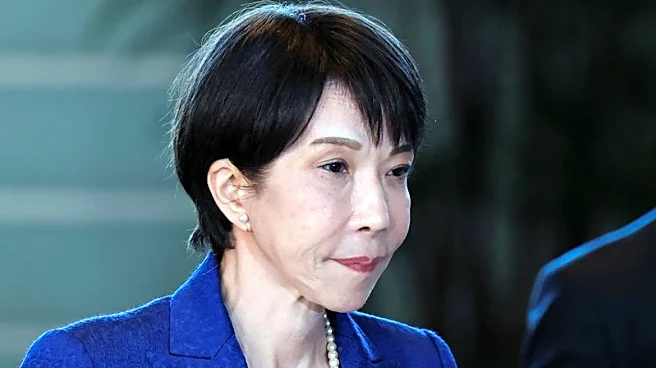Rapid Read • 8 min read
Chief Justice John Roberts has been strategically using his power to assign opinions in the Supreme Court to influence outcomes and reward colleagues. This term, Roberts was in the majority more than any other justice, allowing him to assign 54 of the 56 signed opinions. His assignments often aim to dispel ideological generalizations and strengthen alliances within the court. Recently, Roberts surprised many by assigning Justice Amy Coney Barrett the opinion in a significant case involving President Trump, which released Trump from lower-court orders blocking his policies. This move was seen as a strategic choice to blunt criticism from Trump and reinforce Barrett's position within the court.
AD
Roberts' strategic use of opinion assignments highlights the influence a Chief Justice can wield beyond their single vote. By controlling who writes the court's opinions, Roberts can shape the legal rationale and tone of decisions, impacting future cases and lower court interpretations. This power allows him to navigate the court's ideological divides and maintain a cohesive judicial approach. The recent assignment to Barrett not only strengthens her role but also demonstrates Roberts' ability to manage internal court dynamics and external political pressures, affecting the broader judicial landscape and public perception of the court.
Roberts' approach to opinion assignments may continue to influence the court's direction, especially in politically charged cases. As the court faces upcoming decisions, Roberts' strategic choices could further shape the court's ideological balance and its relationship with the executive branch. Observers will likely watch how Roberts navigates future assignments, particularly in cases involving contentious issues like immigration and civil rights, and how these decisions impact public trust in the judiciary.
Roberts' influence extends beyond immediate court decisions, affecting long-term judicial philosophy and the court's role in American governance. His ability to assign opinions strategically may lead to shifts in legal precedents and interpretations, impacting societal norms and legislative actions. The ethical implications of such power raise questions about the balance between judicial independence and political influence, highlighting the complex dynamics within the highest court.
AD
More Stories You Might Enjoy












